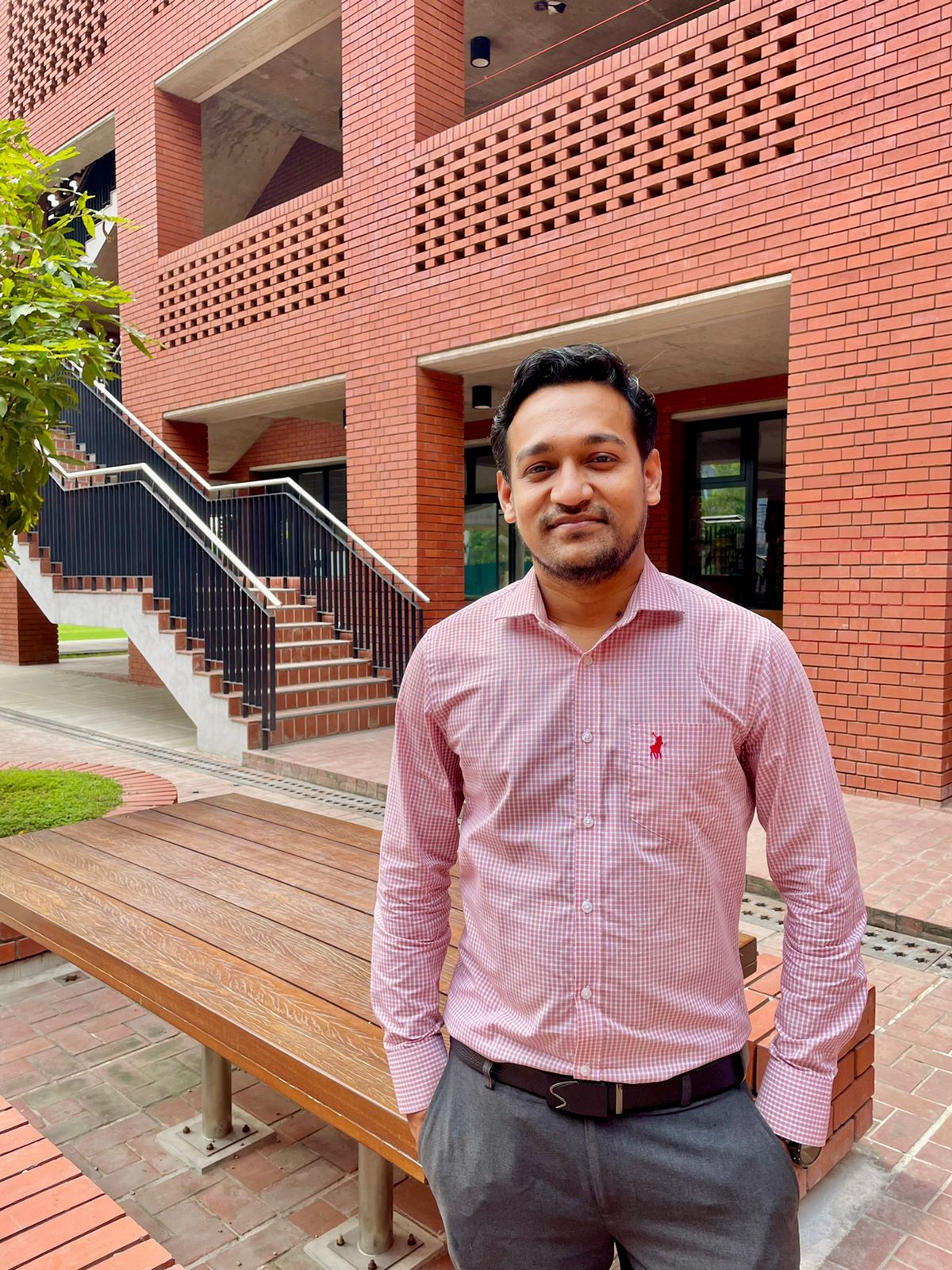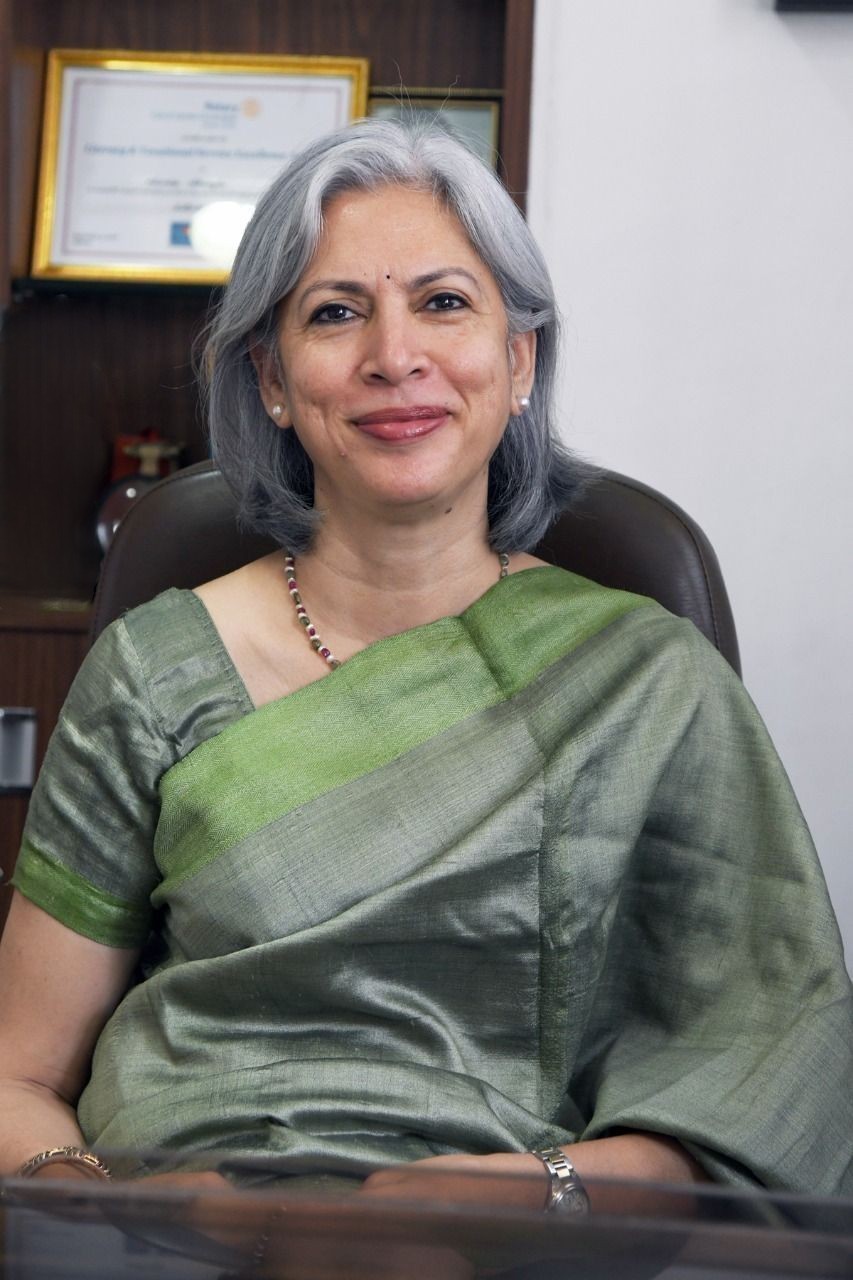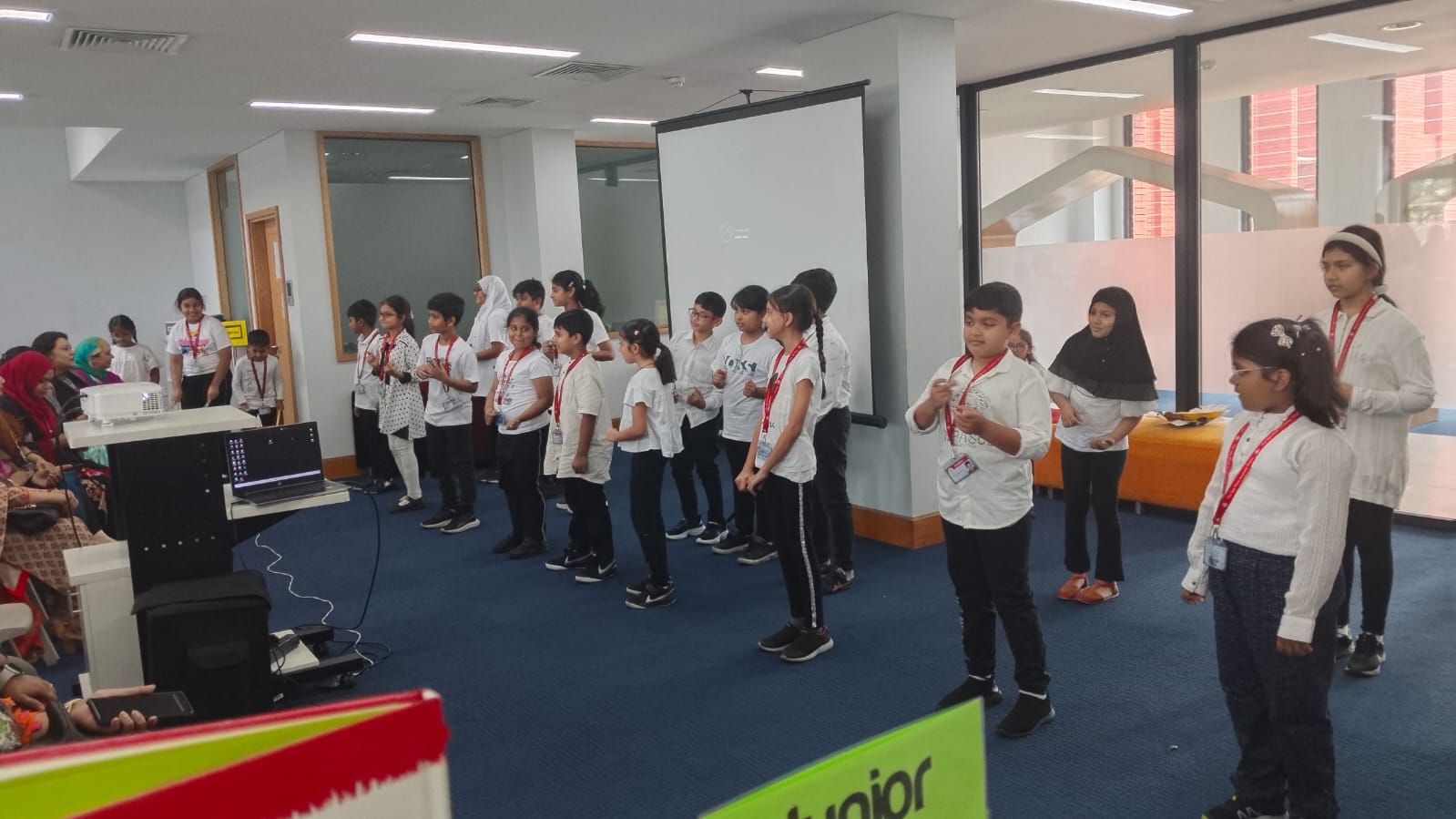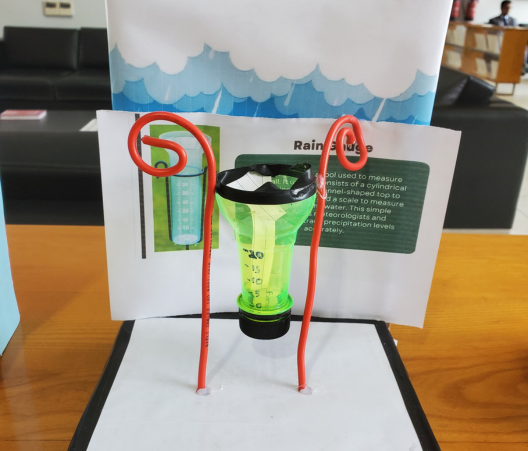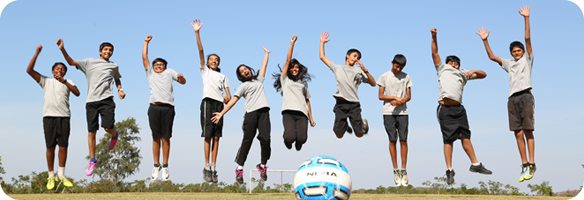
University Counselling
The Aga Khan Academy Dhaka’s counselling programme offers students a vast array of resources designed to help them find good matches between themselves and universities/colleges. These resources include a dynamic and well-resourced college counsellor, a wealth of printed, video and online tools, and a series of informational workshops and seminars on topics central to the college discovery process.
Our counsellors engage students in individual conferences designed to help students reach a greater awareness of who they are. Armed with a well-articulated sense of self, students are prepared to find universities or colleges that are the best fit. Ours is a student-centred approach, and we believe that the likelihood of satisfaction with their choices is enhanced when students are empowered to 'own' the process. Also key to success is good communication among all parties: students, parents and college counsellors. While outcomes are important, it is the process of self-discovery and college discovery on which our programme focuses. For information, reach out to our University Counsellor, Ms Nusrat Sharmin at nusrat.sharmin@agakhanacademies.org.
Click here to find the 2024-25 school profile.
Click here to download a copy of the latest handbook.
The Academies Network
The Aga Khan Academy Dhaka is the fourth in a network of Aga Khan Academies across East Africa and South Asia. The first Academy opened in Mombasa, Kenya in 2003, the second in Hyderabad, India in 2011 and the third in Maputo, Mozambique in 2013.
The aim of the Academies is to develop future leaders with the skills and knowledge to support positive development in their societies. We achieve this by recruiting exceptional young people from all backgrounds and providing them with the highest international standard of education.
Admission is competitive and based on student merit, regardless of a family’s ability to pay. Each Academy endeavours to meet the demonstrated financial need of each admitted student.
The network of Academies will form a global learning community, graduating 1,500 students annually.
For more information, visit our Academies network home page.
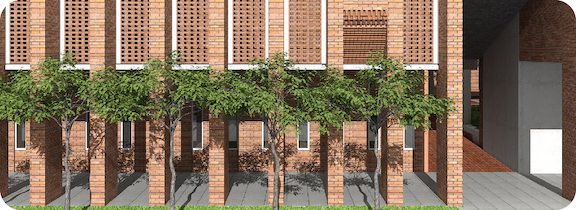
Living on Campus
Residential life at the Academy complements and extends the academic experience. Our residential programme includes a broad selection of activities and leadership opportunities to enhance students’ learning and growth. The Academy in Dhaka will offer a residential programme soon.
The Academy’s residences will include facilities to accommodate both students and teachers. Our residences will house boarding students requiring accommodation as well as those participating in international exchanges between the Aga Khan Academy Dhaka and other Academies and schools.
Teachers' quarters on campus will house both resident and visiting faculty.
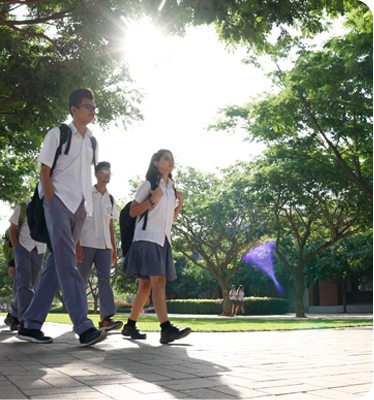 Learning beyond the classroom
Learning beyond the classroom
Our residential programme is about the learning and growth that comes through constant interaction with a diverse and talented group of teachers and peers.
Mealtimes and other gatherings will provide our residential students with opportunities for informal interaction as well as for discussions, meetings, language tables and study groups.
The focus of the residential experience is on students’ intellectual, social, spiritual and physical growth in a structured and ethical environment. Many of the least tangible but most important elements of an education – the development of practical leadership skills, the capacity to make ethical judgments, the ability to navigate through complex cultural settings – are formed outside the classroom.
The safe and secure environment of the Academy’s boarding facilities will give students of all backgrounds the opportunity to thrive emotionally, intellectually and physically.
Aga Khan Curricular Strands
The Aga Khan Curricular Strands (AK Strands) are a unique part of the programme offered by the Aga Khan Academies. The AK Strands are areas of learning aimed specifically at developing knowledge, skills and attitudes required by future leaders.
Our goal at the Academies is to develop young people who have strong local roots and are also globally minded. They should be able to become leaders in whichever fields they choose.
To help achieve this goal, we have identified five areas of learning, the Aga Khan Curricular Strands, that we believe are important for our students. These are:
- Ethics
- Pluralism
- Cultures (with an emphasis on Muslim civilisations)
- Governance and Civil Society
- Economics for Development.
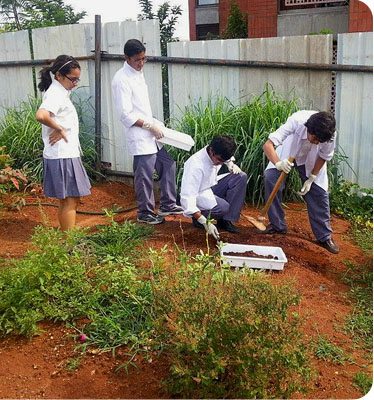 Implementing the AK Strands
Implementing the AK Strands
The Aga Khan Curricular Strands are not taught as independent subjects. Instead, we weave them into the existing subject areas of the academic curriculum. They help inform the selection of content and themes for study. The AK Strands also provide direction for school life outside the classroom in areas such as policy making, recruitment, student life and residential life.
Two of the AK Strands, Ethics and Pluralism, help students develop values and dispositions required by ethical leaders. Our students learn about these areas in theory and are also encouraged to practice what they learn in their everyday lives.
Through the other three AK Strands, our students learn about ideas that are important to the functioning of societies. In particular, they learn about how these ideas impact people’s lives in countries of the developing world. The knowledge they gain helps them understand key issues from both local and international perspectives.
The AK Strands in practice
The Aga Khan Curricular Strands were developed at the first Aga Khan Academy in Mombasa and are designed to be used in different cultural contexts. Teachers at the Aga Khan Academy Hyderabad helped tailor the AK Strands for the local environment in India and the teachers at the Aga Khan Academy Dhaka will do the same.
For example, grade 3 students worked on a history and geography unit about Hyderabad that related to Economics for Development. The students examined how the physical features of the area influenced the city and its economic activity. They learned about employment today and also looked at traditional forms of work, including a visit to a nearby weaving cooperative. This unit helped the students understand both general ideas about economics and their impact on daily life in Hyderabad.
Through the Aga Khan Curricular Strands, our students develop attitudes and values that will help them throughout their lives. They also gain knowledge and understanding that will allow them to contribute positively to their societies in the future.
For more information on the educational programme offered at the Aga Khan Academy Dhaka, please visit the Academic Programme page.
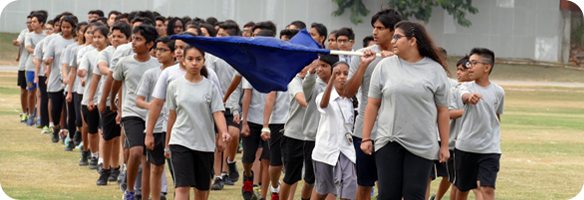
Diploma Programme
The Aga Khan Academy Dhaka is an International Baccalaureate (IB) authorised World School and has been authorised for the Diploma Programme (DP). The DP is a demanding, pre-university-level course of studies. It is internationally recognised by over 2,000 universities worldwide.
The DP has a reputation for rigorous assessment of student achievement. Each student’s performance and levels of knowledge are examined internally by teachers according to set criteria. They are also assessed externally by independent examiners according to global standards applied to all IB schools.
Our students study all the subjects covered in a traditional, broad curriculum, including languages, social sciences, experimental sciences, mathematics and the arts. The DP also takes the curriculum a step further through three unique programmes:
- Theory of knowledge;
- Creativity, activity, service; and
- Extended essay.
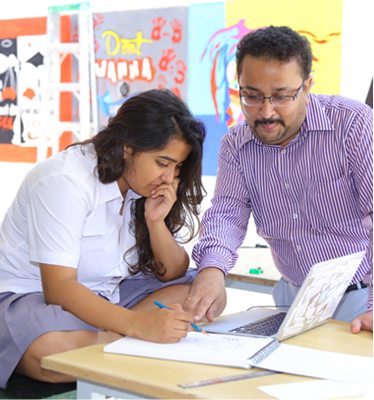 Theory of knowledge
Theory of knowledge
Theory of knowledge (TOK) is an interdisciplinary requirement unique of the DP. It encourages students to reflect on the knowledge they gain both inside and outside the classroom.
One hundred hours of classroom time are dedicated to the TOK programme. We challenge our students to question the nature of knowledge across disciplines, to recognise biases and to analyse evidence using rational thought and argument. By making our students consider and appreciate different perspectives, TOK contributes towards a pluralistic outlook.
Creativity, activity, service
Creativity, activity, service (CAS) is an important component of the IB curriculum and is required for every DP student at the Academy. Our students participate actively in a variety of creative endeavours, physical activities and community service projects. They develop self-confidence, teamwork and leadership skills, and a sense of civil responsibility.
Students take part in sustainable projects that have real and lasting effects on the greater Dhaka community. They develop strength of character and an understanding of their ability to bring about change.
The CAS programme is valued for its power to transform the lives not only of students but also the people they work with. It serves as a platform for interpersonal exchange, personal growth and greater understanding of the issues we face as a global community.
Extended essay
The extended essay (EE) requires students to pick a subject of their choice and research and develop it into a 4,000-word essay. Students may choose to investigate a subject from one of their higher-level courses more deeply. Or they can broaden their academic experience by researching a subject in a field they are not currently studying.
Through the EE, we introduce students to the kind of independent research and writing skills expected at the university level.
For further information on the IB Diploma Programme at the Academy, please see the admission requirements or contact us.
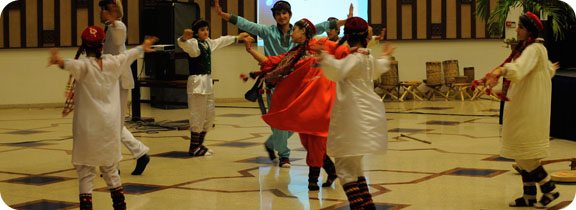
International Exchanges
At the Aga Khan Academies, we offer our students the opportunity to broaden their experience through exchanges with other Academies.
The Aga Khan Academy Dhaka will include an international exchange programme as part of the Senior School curriculum. This will provide our students with the opportunity to study for an extended period in another Academy in East Africa or South Asia. The programme provides students with the opportunity to experience life in a range of different countries and cultures.
In the 2018–2019 academic year, the inaugural programme began for Grade 9 students at the Aga Khan Academy Mombasa and the Aga Khan Academy Hyderabad. It later extended to include the Aga Khan Academy Maputo.
Campus life
Students from the Academy in Dhaka who participate in an exchange with another Academy will live in residential facilities in a secure campus setting.
Campus life is an important part of the international exchange programme. Many of the least tangible but most important elements of an education – the development of practical leadership skills, the capacity to make ethical judgments, the ability to navigate through complex cultural settings – are formed outside the classroom. Mealtimes and other informal gatherings offer opportunities for discussion, meetings and study groups.
The exchange will offer a structured programme of activities, both on and off-campus. This is designed to increase students’ understanding of their own and other cultural identities, to recognise different components of culture, to interact with the local community through service learning, and to reach a comparative understanding of the process of development in another country.
Benefits of study abroad
The International Baccalaureate programme is implemented through the medium of English at all Aga Khan Academies. The common curriculum will allow students to study abroad without facing uncertainties regarding compatibility of course study or examinations. Students will also learn to appreciate and respect other nationalities, cultures and intellectual traditions through direct contact with people in other countries. They will broaden their worldview and learn to be at ease in different cultural settings.
The exchange will increase students’ willingness and ability to collaborate across borders and cultures, as they form networks of friendships across the world. It will build the strength of character necessary for ethical and pluralistic leadership. Students will develop greater adaptability and resilience as they learn to overcome the challenges of living in a new cultural setting with local peers.
For further information on the educational programme offered at the Aga Khan Academy Dhaka, please visit the Academic Programme page.
